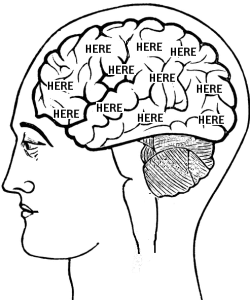Do robots care? Aeon has an edited version of the inaugural Margaret Boden Lecture, delivered by Boden herself. You can see the full lecture above. Among other things, she tells us that the robots are not going to take over because they don’t care. No computer has actual motives, the way human beings do, and they are indifferent to what happens (if we can even speak of indifference in a case where no desire or aversion is possible).
No doubt Boden is right; it’s surely true at least that no current computer has anything that’s really the same as human motivation. For me, though, she doesn’t provide a convincing account of why human motives are special, and why computers can’t have them, and perhaps doesn’t sufficiently engage with the possibility that robots might take over the world (or at least, do various bad out-of-control things) without having human motives, or caring what happens in the fullest sense. We know already that learning systems set goals by humans are prone to finding cheats or expedients never envisaged by the people who set up the task; while it seems a bit of a stretch to suppose that a supercomputer might enslave all humanity in pursuit of its goal of filling the world with paperclips (about which, however, it doesn’t really care), it seems quite possible real systems might do some dangerous things. Might a self-driving car (have things gone a bit quiet on that front, by the way?) decide that its built-in goal of not colliding with other vehicles can be pursued effectively by forcing everyone else off the road?
What is the ultimate source of human motivation? There are two plausible candidates that Boden doesn’t mention. One is qualia; I think John Searle might say, for example, that it’s things like the quake of hunger, how hungriness really feels, that are the roots of human desire. That nicely explains why computers can’t have them, but for me the old dilemma looms. If qualia are part of the causal account, then they must be naturalisable and in principle available to machines. If they aren’t part of the causal story, how do they influence human behaviour?
Less philosophically, many people would trace human motives to the evolutionary imperatives of survival and reproduction. There must be some truth in that, but isn’t there also something special about human motivation, something detached from the struggle to live?
Boden seems to rest largely on social factors, which computers, as non-social beings, cannot share in. No doubt social factors are highly important in shaping and transmitting motivation, but what about Baby Crusoe, who somehow grew up with no social contact? His mental state may be odd, but would we say he has no more motives than a computer? Then again, why can’t computers be social, either by interacting with each other, or by joining in human society? It seems they might talk to human beings, and if we disallow that as not really social, we are in clear danger of begging the question.
For me the special, detached quality of human motivation arises from our capacity to imagine and foresee. We can randomly or speculatively envisage future states, decide we like or detest them, and plot a course accordingly, coming up with motives that don’t grow out of current circumstances. That capacity depends on the intentionality or aboutness of consciousness, which computers entirely lack – at least for now.
But that isn’t quite what Boden is talking about, I think; she means something in our emotional nature. That – human emotions – is a deep and difficult matter on which much might be said; but at the moment I can’t really be bothered…

